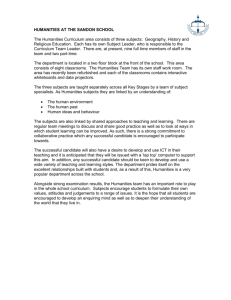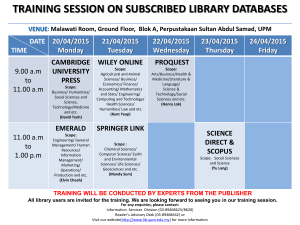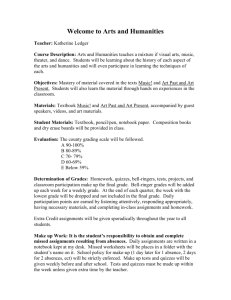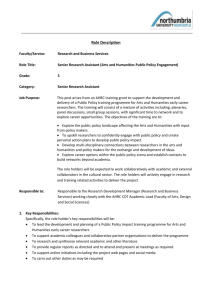Humanities Course Proposal: History, Philosophy or Literature
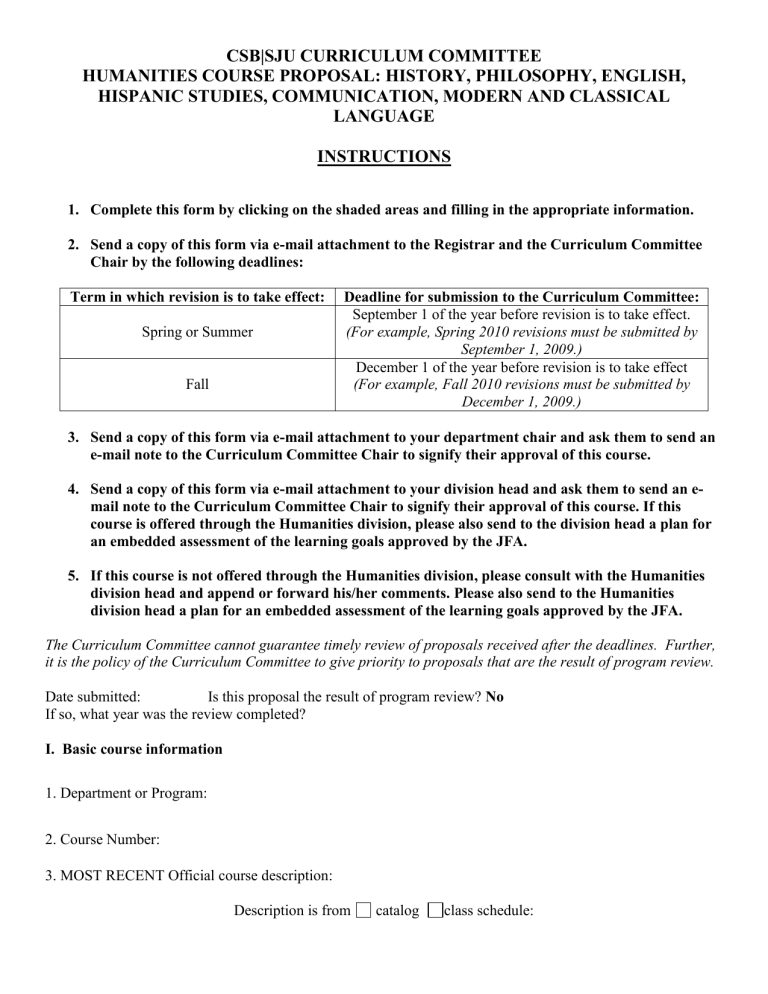
CSB|SJU CURRICULUM COMMITTEE
HUMANITIES COURSE PROPOSAL: HISTORY, PHILOSOPHY, ENGLISH,
HISPANIC STUDIES, COMMUNICATION, MODERN AND CLASSICAL
LANGUAGE
INSTRUCTIONS
1.
Complete this form by clicking on the shaded areas and filling in the appropriate information.
2.
Send a copy of this form via e-mail attachment to the Registrar and the Curriculum Committee
Chair by the following deadlines:
Term in which revision is to take effect: Deadline for submission to the Curriculum Committee:
September 1 of the year before revision is to take effect.
Spring or Summer (For example, Spring 2010 revisions must be submitted by
September 1, 2009.)
Fall
December 1 of the year before revision is to take effect
(For example, Fall 2010 revisions must be submitted by
December 1, 2009.)
3.
Send a copy of this form via e-mail attachment to your department chair and ask them to send an e-mail note to the Curriculum Committee Chair to signify their approval of this course.
4.
Send a copy of this form via e-mail attachment to your division head and ask them to send an email note to the Curriculum Committee Chair to signify their approval of this course. If this course is offered through the Humanities division, please also send to the division head a plan for an embedded assessment of the learning goals approved by the JFA.
5.
If this course is not offered through the Humanities division, please consult with the Humanities division head and append or forward his/her comments. Please also send to the Humanities division head a plan for an embedded assessment of the learning goals approved by the JFA.
The Curriculum Committee cannot guarantee timely review of proposals received after the deadlines. Further, it is the policy of the Curriculum Committee to give priority to proposals that are the result of program review.
Date submitted: Is this proposal the result of program review? No
If so, what year was the review completed?
I. Basic course information
1. Department or Program:
2. Course Number:
3. MOST RECENT Official course description:
Description is from catalog class schedule:
4. Semester and Year Core designation would begin:
5. Is this a NEW Course? No If yes, please give the date it was approved:
6. List all other Core designations
applied for:
received:
7. Instructor(s):
8. Are there any prerequisites for registering for this course? No
If yes, please list:
General course description for the Humanities requirement in the common curriculum
The Humanities disciplines constitute a way of thinking, talking and writing about what it means to be human. Study in the
Humanities disciplines introduces us to people we have never met, places we have never visited, times in which we have not lived, perspectives we have never taken, and ideas that may never have crossed our minds. Through careful and rigorous engagement with texts produced by (and about) those other people, places, and ideas, we explore issues of identity, community, and culture, as well as values, purpose, and meaning. With perspectives thus enlarged and enriched, and with the skills to explore these questions further, the
Humanities invite and equip us to live an examined life.
Courses that satisfy the Humanities requirement will be either upper or lower division four-credit courses with no more than one course from a single Humanities Department. Though Theology is one of the Humanities disciplines, Theology courses do not satisfy the Humanities requirement. Interdisciplinary courses, with a Humanities orientation, are eligible for designation as a Humanities core course
II. Questions regarding Humanities criteria
Each of the following questions is designed to help the Committee understand how the Humanities learning goals will be met in your course. Please be as specific as possible in your responses. Examples are especially helpful.
1.
What documents and/or primary sources will students analyze?
2.
Describe how students will demonstrate that they have engaged a text with the analytic, critical, sympathetic, and/or speculative methods of one of the Humanities disciplines.
3.
Describe how students will demonstrate critical thinking and effective communication through writing and discussion of the examined texts.
